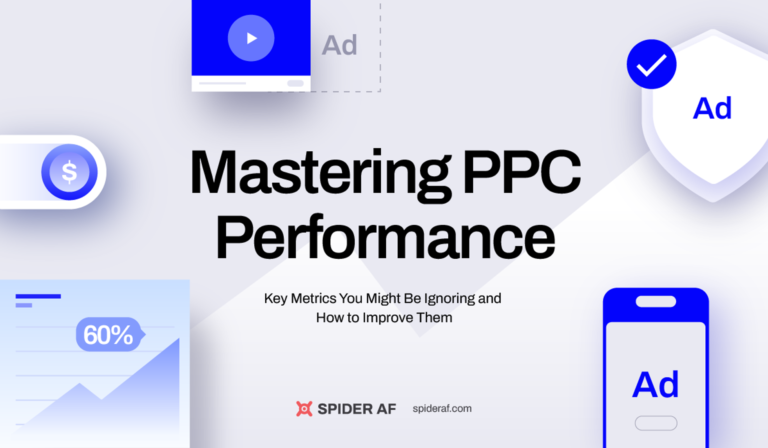To create a winning Google Ads campaign for local businesses, optimize keywords, target specific locations, and create persuasive ad copy that highlights unique selling propositions and call-to-actions. Effective online advertising can greatly benefit local businesses by driving targeted traffic to their websites or physical locations.
Google Ads is a powerful advertising platform that allows businesses to reach potential customers at the exact moment they are searching for relevant products or services. Creating a successful Google Ads campaign requires strategic planning and careful execution. We will explore the essential steps to create a winning Google Ads campaign for local businesses.
By following these strategies, businesses can increase their online visibility, attract qualified leads, and ultimately drive more sales. Let’s dive in and discover the key ingredients to a successful Google Ads campaign for local businesses.

Credit: www.linkedin.com
Understanding The Importance Of Google Ads For Local Business
Understanding the importance of Google Ads for local business is crucial for creating a winning campaign. By strategically targeting keywords, optimizing ad copies, and analyzing data, businesses can effectively connect with their local audience and drive maximum conversions.
The Benefits Of Google Ads For Local Businesses
Implementing Google Ads for local businesses can be a game-changer when it comes to driving targeted traffic and increasing revenue. With the power of Google’s vast reach and advanced targeting capabilities, local businesses can benefit in numerous ways:
- Increased Visibility: Google Ads enables local businesses to appear prominently in search results, ensuring that potential customers in their vicinity can easily find them.
- Targeted Advertising: With Google Ads, businesses can define their target audience geographically and show their ads specifically to users within their local area.
- Cost-effective: Unlike traditional advertising methods (such as newspaper ads or billboards), Google Ads allows businesses to set their own budget and pay only for clicks or impressions that their ads receive.
- Measurable Results: Google Ads provides comprehensive data and analytics, allowing businesses to track the performance of their campaigns in real-time and make data-driven decisions for optimizing their marketing strategies.
- Competitive Advantage: By leveraging Google Ads, local businesses can gain an edge over their competitors who may not be utilizing this powerful advertising platform.
Setting Realistic Goals For Your Google Ads Campaign
Before diving into creating a Google Ads campaign, it’s important to establish clear and realistic goals. Setting achievable objectives from the outset will help you track and measure the success of your campaign effectively. Here are a few steps to ensure your goals are on point:
- Identify Your Key Performance Indicators (KPIs): Determine the specific metrics that align with your business objectives. Whether it’s increasing website traffic, generating leads, or boosting sales, defining clear KPIs will guide your campaign strategy.
- Be Specific: Set specific, measurable, attainable, relevant, and time-bound (SMART) goals. For example, instead of a general goal like “increase sales,” specify a target percentage increase within a specific timeframe.
- Consider Your Budget: Align your goals with your advertising budget to ensure they are realistic and achievable. It’s crucial to have a budget that allows you to reach your target audience effectively.
- Track Progress Regularly: Regularly monitor and analyze the performance of your Google Ads campaign. Make adjustments as needed to maximize results and achieve your goals.
Planning And Implementing Your Google Ads Campaign
Planning and implementing your Google Ads campaign is crucial for the success of your local business. With careful research and effective strategies, you can create a winning campaign that drives qualified traffic and generates leads. In this section, we will explore the essential elements of planning and implementing your Google Ads campaign for local businesses. From conducting keyword research to creating effective ad copies and designing compelling landing pages, each step plays a vital role in ensuring your campaign’s success.
Conducting Keyword Research For Local Businesses
Before you create your Google Ads campaign, it’s crucial to conduct thorough keyword research. Understanding the keywords your potential customers use when searching for local products or services is essential in reaching your target audience effectively. Here’s how you can conduct keyword research for your local business:
- Start by brainstorming a list of relevant keywords that are specific to your business and its offerings. Consider including location-based keywords to attract local customers.
- Use keyword research tools like Google Keyword Planner, SEMrush, or Moz Keyword Explorer to identify search volume, competition, and related keywords.
- Analyze your competitors’ websites and ads to gain insights into the keywords they are targeting.
- Focus on long-tail keywords that are more specific and have lower competition, as they can help you target a niche audience and increase your chances of conversion.
Creating Effective Ad Copies
Your Google Ads campaign’s success also relies on creating compelling ad copies that grab the attention of your target audience and encourage them to take action. Here are some tips for creating effective ad copies:
- Start by writing a strong headline that includes relevant keywords and highlights your unique selling proposition (USP).
- Keep your ad copy concise and well-structured. Use short sentences and clear language to communicate your message effectively.
- Include a clear call-to-action (CTA) that tells your audience what action you want them to take, such as “Call Now,” “Sign Up Today,” or “Book Online.”
- Highlight any special offers, discounts, or unique features of your product or service that differentiate you from your competitors.
- Regularly test and optimize your ad copies to improve their performance. A/B test different variations to see what resonates best with your audience.
Designing Compelling Landing Pages
Creating a compelling landing page is essential for converting your ad clicks into actual leads or sales. A well-designed landing page can also improve your Quality Score, which can lead to better ad placement and lower costs. Consider the following best practices when designing your landing pages:
- Ensure your landing page is relevant to the ad copy and keywords you are targeting. Provide a seamless user experience from ad click to landing page.
- Keep the design clean and visually appealing. Use eye-catching images or videos to engage your visitors.
- Create a clear and compelling headline that immediately communicates the value proposition of your product or service.
- Include concise and persuasive copy that highlights the benefits of choosing your business.
- Add a prominent call-to-action (CTA) that stands out and encourages visitors to take the desired action.
- Optimize your landing page for mobile devices, as more and more people use smartphones to search for local businesses.
Optimizing And Monitoring Your Google Ads Campaign
Optimizing and monitoring your Google Ads campaign is crucial to its success. In this section, we will explore three key strategies that will help you create a winning Google Ads campaign for your local business. By optimizing your bidding strategy, tracking and analyzing key metrics, and adapting your campaign based on performance, you can maximize the effectiveness of your ads and drive more traffic to your business.
Optimizing Your Google Ads Bidding Strategy
One of the most important aspects of running a successful Google Ads campaign is optimizing your bidding strategy. This involves setting bids that will help you achieve your desired campaign goals while also staying within your budget. There are several techniques you can use to optimize your bidding strategy:
- Experiment with different bidding strategies: Google Ads offers various bidding strategies, such as manual bidding, automated bidding, and target CPA bidding. Test different strategies to find the one that works best for your business.
- Set bid adjustments: Bid adjustments allow you to increase or decrease your bids based on factors like device type, location, and time of day. Monitor your performance and adjust the bids accordingly to optimize your ad placements.
- Use bid modifiers: Bid modifiers are a powerful tool that allows you to increase or decrease bids based on specific criteria, such as audience demographics or ad placements. Use them strategically to maximize your campaign’s performance.
Tracking And Analyzing Key Metrics
Tracking and analyzing key metrics is essential to understanding the performance of your Google Ads campaign. By monitoring these metrics, you can identify areas for improvement and make data-driven decisions. Here are some key metrics you should track and analyze:
| Metric | Explanation |
|---|---|
| Click-through rate (CTR) | The percentage of clicks your ad receives compared to the number of impressions it generates. A high CTR indicates that your ad is relevant and engaging. |
| Conversion rate | The percentage of users who complete a desired action on your website, such as making a purchase or filling out a form. A high conversion rate shows that your ads are effective in driving action. |
| Cost per conversion | The average cost you incur for each conversion. Monitoring this metric helps you ensure that your campaign remains cost-effective. |
| Quality score | A measurement of the relevance and quality of your ads, keywords, and landing pages. A high quality score can lead to better ad rankings and lower costs. |
Adapting Your Campaign Based On Performance
Adapting your campaign based on performance is key to achieving long-term success with Google Ads. By regularly monitoring your campaign’s performance and making necessary adjustments, you can optimize your ads and improve your results. Here are some strategies for adapting your campaign:
- Pause underperforming keywords or ads: Identify keywords or ads that are not generating the desired results and pause them to reallocate your budget to more successful elements of your campaign.
- Add negative keywords: Negative keywords help refine your targeting by preventing your ads from showing up for irrelevant searches. Continuously review and add negative keywords to improve your campaign’s efficiency.
- A/B test your ad copy: Test different variations of your ad copy to determine which ones resonate best with your target audience. Use the insights gained from these tests to optimize your ads.

Credit: growthmindedmarketing.com

Credit: www.upwork.com
Frequently Asked Questions Of How To Create A Winning Google Ads Campaign For Local Businesses?
Do Google Ads Work For Local Business?
Yes, Google Ads can be effective for local businesses. They allow you to target a specific location and reach customers in your area. With targeted keywords and ad placements, you can increase visibility and attract more local customers to your business.
How Do I Create A Local Campaign In Google Ads?
To create a local campaign in Google Ads, follow these steps: 1. Sign in to your Google Ads account. 2. Click on the “Campaigns” tab. 3. Select the “+” button and choose the “New campaign” option. 4. Select the “Local” campaign type.
5. Follow the prompts to set up your campaign, including defining your target location, budget, ad format, and bidding strategy.
How Much Should A Local Business Spend On Google Ads?
A local business should spend on Google Ads based on their budget and marketing goals. It’s important to allocate enough funds for effective advertising but also consider other marketing channels. Experimenting, monitoring ad performance, and adjusting the budget accordingly is a smart strategy to determine the optimal spending level.
How Do I Use Google Ads For Local Marketing?
To use Google Ads for local marketing, create a Google Ads account, set your location targeting, select relevant keywords, create compelling ads, and set a budget and bidding strategy. Optimize your campaigns and monitor performance to maximize results.
Conclusion
To sum up, building a successful Google Ads campaign for local businesses requires a strategic approach. By understanding your target audience, conducting thorough keyword research, optimizing your landing pages, and continuously monitoring and optimizing your campaign, you can drive relevant traffic and increase conversions.
Remember to keep your ads targeted, engaging, and aligned with your business goals. With these tips, you’re equipped to create a winning Google Ads campaign for your local business and achieve your desired results. Start now and take your business to new heights!



